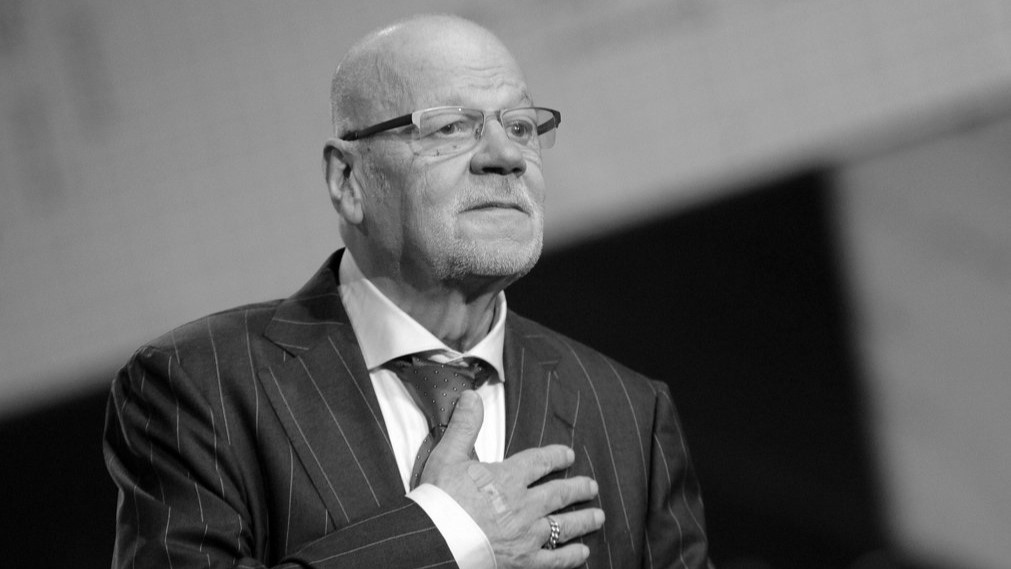Jānis Peters was a Latvian poet, diplomat and politician, one of the first people many think of when the restoration of Latvia’s independence is mentioned, and he is the one who gave Latvia hundreds of lines of song lyrics and poetry that have become part of the national cultural canon.
Jānis Peters was born on June 30, 1939 in Priekule to Jānis and Zelma Petere. From 1947 to 1958 he studied at Liepāja Rainis Secondary School No. 6, and later graduated from Riga Evening Secondary School No. 25.
Already in childhood, the boy knew that he would be a writer, but life took him to the Liepāja Theater (1957–1963), where the future poet found his calling.
Having worked as a stagehand and then as an assistant director, the young man became a correspondent for local newspapers, and in 1961 Peters’ first poem, “The Rowan Tree in the Snow,” was published. In 1967, he began working for the magazine “Zvaigzne” as the editor of the prose department.
Peters was well-received by his colleagues in Liepāja and soon in the capital, Riga, in newspaper and magazine editorial offices. Responsible positions in the Writers’ Union and active community work followed.
The most active period of creative activity was during the 1960s–1980s. The theme of national destiny dominates Jānis Peters’ poetry.
Between 1968 and 2016, Peters published ten collections of poems. His famous collaboration and friendship with composer Raimonds Pauls began in 1971. During these decades, hundreds of songs, musicals and music for many theater performances were penned together. Peters’ words also complemented the melodies of Uldis Stabulnieks, Mārtiņš Brauns, Zigmaris Liepiņš, Ivars Vīgners and other composers.
Peters’ creative output also includes prose works, a libretto for the opera “Spārni” (1976), and translations of poems by foreign authors. He has also written lyrics for several theater performances, as well as scripts and texts for films.
But he was not an isolated artist. Jānis Peters also played an important role in the social processes of the 1980s and 1990s. In 1968, he was admitted to the Writers’ Union of the Latvian SSR, where he was the secretary of the board (1974–1976), poetry consultant (1974), and finally the first secretary of the board (1985–1990). During the years of national reawakening, Peters became one of the central figures of the events of that time, one of the founders and leaders of the Popular Front.
After the restoration of Latvia’s independence, he served as a diplomat, including postings to Moscow and he was also the head of the Krišjānis Valdemārs Foundation (since 1998), as well as the director of the Institute of Public Relations of the Institute of Eastern Europe of the University of Latvia (since 1999).
During his lifetime, Jānis Peters received many awards, including the Order of the Three Stars.
Once asked if he considered himself to have classic status classic as a poet, Jānis Peters replied modestly: “The reader – the people – either appoints or does not appoint a classic. And maybe only after many years. [Poet] Ojārs Vācietis is already a classic for me today. But I want to be a poet who can be easily read, with five to ten poems left behind, if an anthology of poetry from the 1970s to the present day is ever published.”
Our condolences to his family, friends and many admirers.
